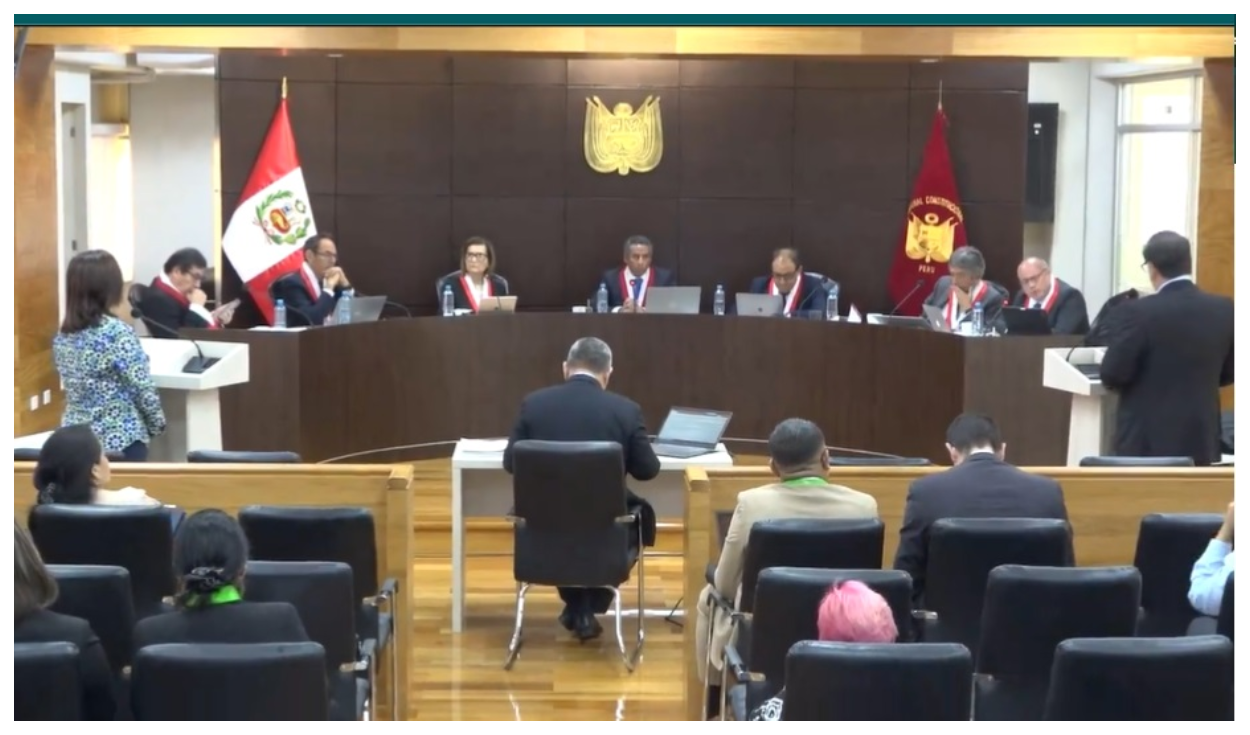
With six votes in favor and one against, the Constitutional Court rejected the request for protection filed by Scotiabank against a resolution of the Constitutional and Permanent Social Chamber of the Supreme Court, which ruled in favor of the National Superintendency of Tax Administration (Sunat). At the end of the 90s, Sunat reported that Banco Wiese (now Scotiabank) stopped paying the VAT by simulating numerous gold exports, for which it imposed the payment of S/480 million plus interest, which the entity bank complied.
The bank alleged that the accusation was false, so it demanded the return of the money plus interest, which today would reach S/500 million.
The ruling of the TC fully ratifies a series of resolutions issued by the Judiciary during the more than ten years that the judicial process has taken.
The referee concluded that Sunat complied with the regulations and did not violate the rights of Scotiabank -as the bank’s defense maintains- when he determined that he had simulated transactions to receive benefits that did not correspond to him. Scotiabank alleges that Sunat’s audit was incomplete and arbitrary.
THE ROOT OF EVERYTHING
The case originated when, between 1997 and 1998, Banco Wiese – which was later purchased by Scotiabank – carried out purchase and sale operations in refined bar gold. The bank paid the suppliers the final price plus VAT. At that time, in accordance with the General Sales Tax Law, this type of transaction allowed the bank to access a tax credit right.
However, when Sunat applied an inspection process, it detected simulated gold buying and selling operations, which is why it determined that the bank was not entitled to the tax credit. Consequently, it ordered that it pay S/48 million – which was later increased by interest to S/480 million – for omission to pay the VAT.
Scotiabank paid.
In 2006, when Scotiabank acquired Banco Wiese, the controversy was ongoing. The bank filed a series of actions before Sunat and the Tax Court, but all were dismissed. The judicial process began in 2011, when Sunat issued a mayoral resolution that rejected Scotiabank’s claims.
The legal defense of Scotiabank argued that Sunat had only supervised 15 operations, with a total of 865, Therefore, a contentious-administrative judicial process began in 2013, which is the case that the TC has just resolved, after 11 years.
THE FINAL DECISION
Scotiabank’s lawsuit was dismissed in the first instance, and the higher court subsequently ratified the ruling. So the bank’s defense filed an appeal before the Supreme Court, which declared it unfounded. For this reason, Scotiabank filed an amparo action before the Constitutional Court against the ruling of the Supreme Court.
Under the presidency of Francisco Morales Saravia, the panel made up of judges Luz Pacheco Zerga, Gustavo Gutiérrez Ticse, César Ochoa Cardich, Pedro Hernández Chávez and Manuel Monteagudo Valdez – who served as rapporteur -, the TC ruled against Scotiabank’s claim that it sought the replacement of S/480 million.
Judge Helder Domínguez Haro voted in favor of the bank’s protection.
Scotiabank’s defense turned its attention to the Constitutional Chamber of the Supreme Court – which ruled on the bank’s appeal – for having recognized as valid the Sunat reports that mention that there was a simulation of the purchase and sale of refined gold to improperly access the tax credit. . The Canadian bank has denied it until the end.
“Sunat did not review the 865 operations in which the bank participated, but only in 15 of them, in which its suppliers went with the unrefined gold to the Assayers laboratory plants. Once the refining was completed, he delivered the gold (to Banco Wiese, now Scotiabank). Based on the inconsistencies found in these 15 operations, Sunat concluded that all the others were unreal,” according to the Scotiabank version.
THE MIST OF THE CASE
“The Supreme Court copied and pasted the tables made by Sunat into its resolution to try to justify a decision that was totally arbitrary. (…,) Thus, the guarantee of res judicata and the principle of legal certainty were violated, by ignoring the firm pronouncements issued in a criminal process followed by Sunat in which it was recognized that the gold marketing operations did take place. added the defense of Scotiabank.
However, the TC judge found no basis in Scotiabank’s question that Sunat only reviewed 15 of 865 refined gold purchase and sale operations. It wasn’t the evidence.
“(The Supreme Court) did not rely solely on an isolated assessment of the table presented by Sunat to conclude that all gold purchase and sale operations had been reviewed. (…) In no way is it suggested that these tables (from the Sunat) would have been the only means of proof or evidentiary support assessed,” the TC concluded.
Scotiabank was defended by Estudio Payet and Lourdes Flores Nano.
Source: Larepublica
Alia is a professional author and journalist, working at 247 news agency. She writes on various topics from economy news to general interest pieces, providing readers with relevant and informative content. With years of experience, she brings a unique perspective and in-depth analysis to her work.












